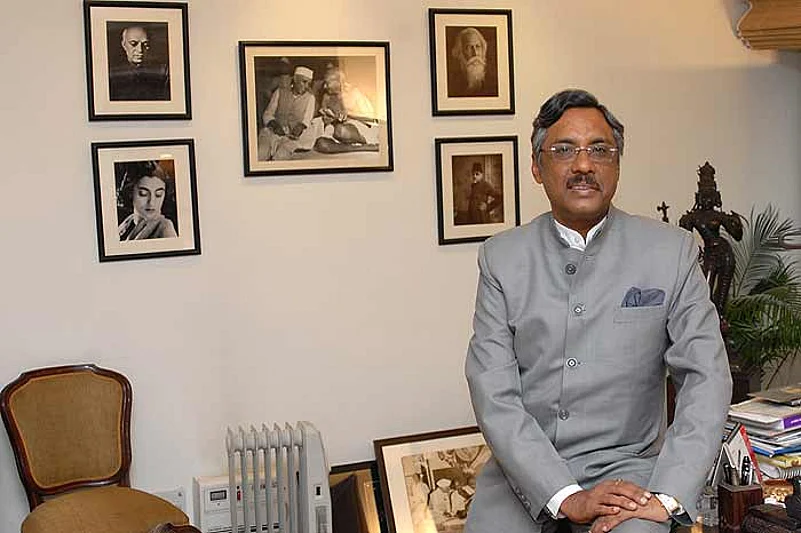What can you say about a hero who looks at a Gulmohur tree and has an urge to hug it?
It won’t be giving the plot away to disclose that he does get a chance, a second chance in life, as it were, to roll up to the tree and give it one of those ones.
Except to admit that yes, once in a while it’s good to come across a hero like Anand who goes on to discover his inner Rinpoche, or teacher, and grab the moment. Helping him onwards and inwards is Pavan K. Varma, until lately the Indian ambassador to Bhutan. He is nothing if not passionate on all matters Bhutanese. While charting the progress of his Indian everyman, he’s also doing a quick “everything you wanted to ask about the Bhutanese but were indifferent about until I told you” number.
For those who’ve never been to the tiny Himalayan kingdom where, as the slogan goes, the gnp equals Gross National Happiness, Varma provides the most charming of introductions. Anand, a Delhi-based lawyer who has been having a bad time of his life and career, is more than ready to take the leap. As his good luck, or karma would have it, he meets the Bhutanese ambassador, who is lurking somewhat inappropriately behind Humayun’s Tomb in Delhi, waiting to pop the question: “Why don’t you visit my country? Indians don’t need a visa,” and so forth, prompting Anand to step into the unknown.
Anand is quite breathless when he takes up residence in his new mountain abode, run by a charming Bhutanese woman called Chimi. She unlocks many windows to his somewhat arid soul, but the first one is the most entrancing.
As Anand describes it, “‘Open the window,’ she said quickly, ‘it changes everything.’ And she was right. An entire valley stepped into my room, with gracefully swaying weeping willows and apple and peach orchards, but dropping steeply into the river, with the giant cliffs across.”
The giant cliffs have a hypnotic quality as Anand gazes out at them, charting the changing patterns of the shadows of the famed thunderclouds of the Dragon Kingdom playing upon their surface, while Chimi tells him the legend that lies behind them. It’s one of the more seductive elements of the Thangka, or wall hanging, that Varma has woven into his tale.
It takes you back to a more innocent era, when seagulls called Jonathan took it upon themselves to ponder the more tricky questions of life instead of merely diving to seek the first morsel of fish. Or in more recent times to Breakfast with Buddha when a middle-aged, middle-brow American, Otto Ringling, runs into the rambunctious, golf-playing Volya Rinpoche, only to have Rinpoche wave circles of Buddhist koans and questions around him.
There is something irresistible in the idea of the questing hero, particularly in these times when any kind of heroic activity is as unexpected as Lady Gaga joining a nunnery.
As it happens, Anand meets his female counterpart in a young woman, Tara. She has joined a nunnery close to where he is living at Chimi’s guest house. At best, she is what might be described as a bipolar individual or, as Varma puts it in an earlier book, the average Indian who is “a good example of a harmonious schizophrenic”. Until now Varma, a rah! rah! romancer of the Great Indian Middle Class, diagnoses a burn-out, a meeting of harmony and agony. Luckily for both, relief is at hand in the form of yet another Bhutanese folk hero, Drupka Kunley, a tantric yogi whose weapon of choice for satiating the desires of the women who seek his guidance is a monumental phallus called The Flaming Thunderbolt of Wisdom.
Pavan Varma is too much the scholar of Ghalib and sundry wise men of “Hindosthan” to use his learning lightly. He lectures instead of enlightening. He is wise after the act. His tale is full of wisdom, but carries no flash of the divine thunderbolt of inspiration.
Drukpa Kunley would have opened his third eye and reduced him to a tiny pebble on the face of the giant cliffs of a Bhutanese valley. Even that is perhaps a kind of benediction, a requiem for an emissary of middle India pinning his flag on the Dragon Kingdom.


























